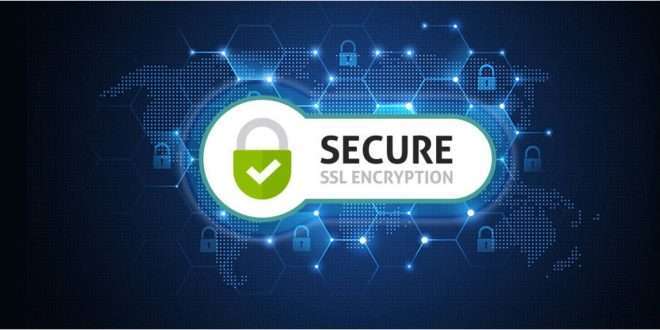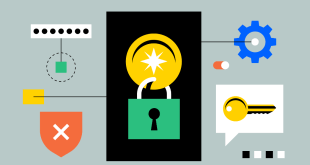In today’s digital landscape, security is paramount for any website owner. Ensuring a safe browsing experience for visitors not only boosts customer trust but also plays a crucial role in search engine rankings. One of the most effective ways to protect user data and instill confidence in your online presence is by implementing SSL certificates. In this comprehensive guide, we will delve into the realm of aesthetically pleasing SSL certificates for modern websites. From understanding the significance of HTTPS certificates to choosing the right SSL certificate for your website, we’ve got you covered.
The Significance of HTTPS Certificates
HTTPS certificates, also known as SSL certificates, serve as the foundation for secure communication between a user’s browser and the website’s server. The “s” in HTTPS stands for secure, indicating that the connection is encrypted and authenticated. With cyber threats on the rise, HTTPS has become a crucial ranking factor for search engines like Google. Websites without SSL certificates are now flagged as “Not Secure,” potentially deterring visitors from interacting with your site.
SSL Certificates for Website Security
Choosing the right SSL certificate can significantly impact your website’s security and, consequently, its ranking in search engine results. There are various types of SSL certificates available, catering to different needs:
Domain Validation (DV) SSL Certificates
DV SSL certificates are the most basic type, providing a secure connection and displaying the padlock symbol in the browser’s address bar. They are ideal for personal blogs or informational websites where the trust factor is not a top priority.
Organization Validation (OV) SSL Certificates
OV SSL certificates offer a higher level of validation, requiring businesses to provide documentation to verify their identity. The browser displays both the padlock and the organization’s name, enhancing user trust. These certificates are suitable for small businesses and e-commerce websites.
Extended Validation (EV) SSL Certificates
EV SSL certificates offer the highest level of validation, requiring a rigorous verification process. The browser’s address bar turns green, displaying the organization’s name, enhancing trust and credibility. EV certificates are recommended for large enterprises and financial institutions.
The Aesthetics of SSL Certificates
SSL certificates play a vital role in website security, but they can also contribute to the aesthetics of your website. Gone are the days of plain SSL certificates that seemed out of place. Today, there are aesthetically pleasing SSL certificates that blend seamlessly with modern website designs:
Themed SSL Certificates
Themed SSL certificates allow website owners to customize the certificate’s appearance to match their brand’s visual identity. Whether it’s incorporating brand colors or logos, themed SSL certificates provide a cohesive and professional look.
Wildcard SSL Certificates
Wildcard SSL certificates cover a domain and its subdomains, making them a convenient choice for websites with multiple subdomains. These certificates not only secure the entire website but also ensure a uniform look across different sections.
Multi-Domain SSL Certificates
For websites with multiple domains, multi-domain SSL certificates are the way to go. They secure multiple domains under a single certificate, simplifying the management process and providing a cohesive security solution.
Factors to Consider While Choosing an SSL Certificate
Selecting the right SSL certificate for your website requires careful consideration. Here are some essential factors to keep in mind:
Certificate Authority (CA) Reputation
Choose an SSL certificate from a reputable Certificate Authority with a track record of reliability and trust. Popular CAs like Let’s Encrypt, DigiCert, and Comodo are widely recognized and recommended.
Encryption Strength
Look for SSL certificates that offer strong encryption, such as 2048-bit key length. Strong encryption ensures that data transmitted between users and your website remains secure.
Browser Compatibility
Ensure that the SSL certificate you choose is compatible with all major browsers. A certificate that works seamlessly across different browsers guarantees a consistent user experience.
Support and Warranty
Check the level of customer support provided by the Certificate Authority and the warranty they offer. A robust support system and warranty add an extra layer of protection for your website.
SSL Certificate Installation and Renewal
Once you have selected the perfect SSL certificate for your website, the next step is installation and renewal:
SSL Installation Process
The SSL certificate installation process may vary based on your hosting provider and server configuration. Most CAs provide comprehensive guides and support to help you with the installation process.
SSL Certificate Renewal
SSL certificates come with an expiration date, typically ranging from one to two years. It’s crucial to renew the certificate before it expires to maintain uninterrupted security.
Commonly Asked Questions
Q1: Why do I need an SSL certificate for my website?
A1: SSL certificates are essential for securing the data transmitted between users and your website, preventing cyberattacks and boosting customer trust.
Q2: Can I use a free SSL certificate for my e-commerce website?
A2: While free SSL certificates like Let’s Encrypt are an option, for e-commerce websites, it is advisable to opt for OV or EV certificates, which provide higher validation levels and enhanced trust.
Q3: How can I check if my SSL certificate is installed correctly?
A3: You can use online SSL checker tools to verify if your SSL certificate is installed correctly and functioning as intended.
Q4: Is it necessary to renew my SSL certificate annually?
A4: Yes, SSL certificates come with an expiration date, and it is crucial to renew them annually to maintain a secure connection.
Q5: Can SSL certificates improve my website’s search engine rankings?
A5: Yes, SSL certificates are considered a ranking factor by search engines like Google. Having HTTPS in your URL can positively impact your website’s SEO.
Final Words
In the ever-evolving digital landscape, securing your website with aesthetically pleasing SSL certificates is not just an option; it’s a necessity. With the rise in cyber threats, ensuring a safe browsing experience for your visitors is paramount. Choose the right SSL certificate that aligns with your website’s needs and aesthetics, and you’ll not only enhance security but also improve your search engine rankings.
 webfily
webfily



